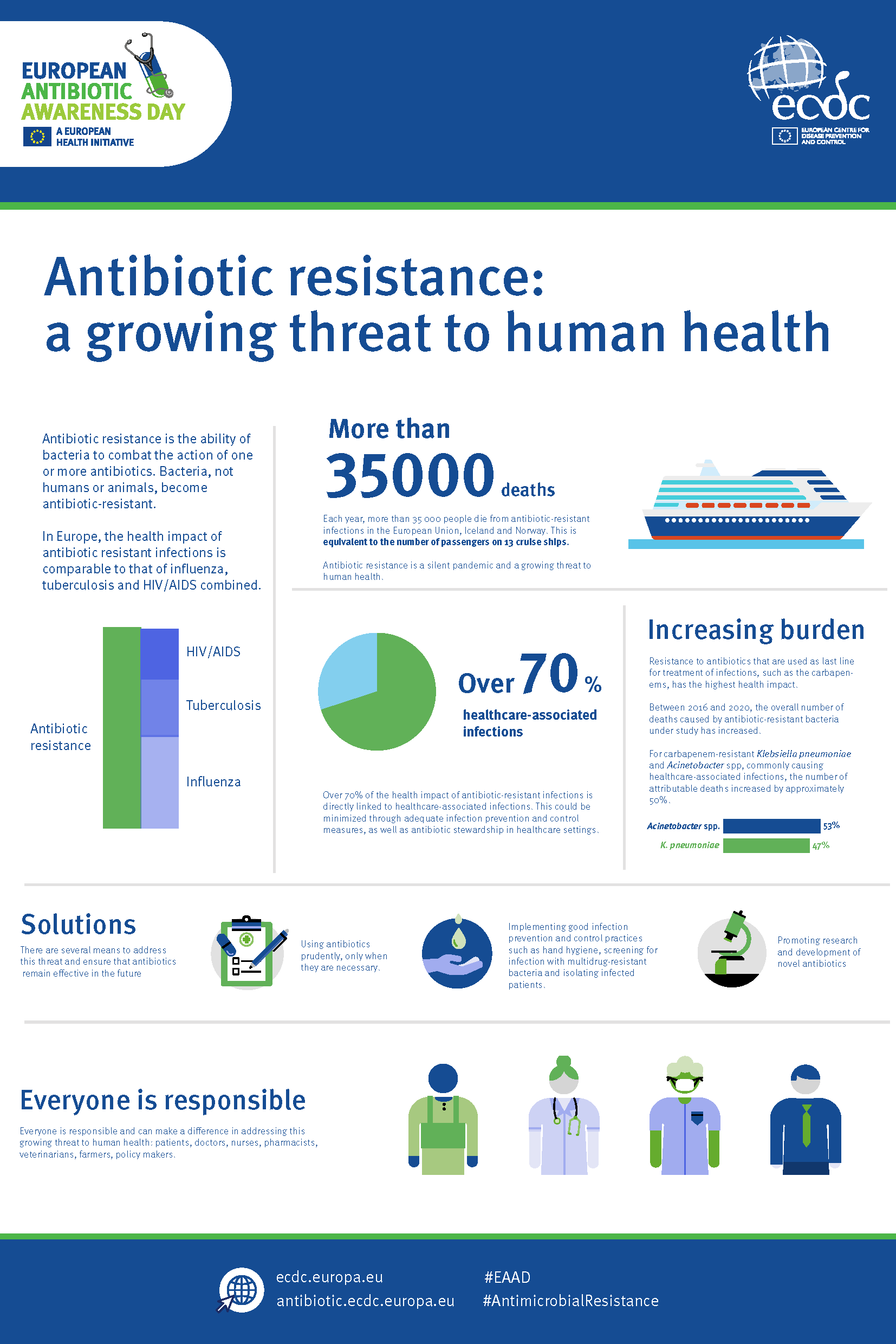Fungal Infections: A Growing Threat Of Antibiotic Resistance

Table of Contents
The Rise of Antifungal Resistance
Antifungal resistance occurs when fungi develop mechanisms to survive the effects of antifungal drugs. This resistance is a complex process, driven primarily by the overuse and misuse of these medications. The more we use antifungals, the more opportunities we give fungi to adapt and evolve resistance mechanisms. This evolution can manifest in several ways, including genetic mutations that alter the drug's target site or the development of efflux pumps that actively remove the antifungal from the fungal cell.
The problem is exacerbated by several factors:
- Increased use of broad-spectrum antifungals: The widespread use of these powerful drugs selects for resistant strains, accelerating the resistance development process.
- Lack of new antifungal drug development: The pipeline for new antifungal medications is alarmingly thin, leaving us with limited options to combat resistant strains.
- Improper diagnosis and treatment leading to prolonged exposure: Incorrect diagnoses or inadequate treatment durations expose fungi to suboptimal drug concentrations, fostering resistance.
- Genetic mutations in fungi leading to drug resistance: Spontaneous mutations can confer resistance, particularly in species like Candida auris, a rapidly emerging global threat known for its high resistance to multiple antifungal drugs. Other concerning examples include the increasing resistance in Aspergillus species and Cryptococcus neoformans, which cause severe infections in immunocompromised individuals.
Vulnerable Populations and Fungal Infections
Certain populations are significantly more vulnerable to fungal infections and the devastating consequences of antifungal resistance. These include:
- Patients with HIV/AIDS: Weakened immune systems make these individuals highly susceptible to opportunistic fungal infections.
- Organ transplant recipients: Immunosuppressive drugs needed to prevent organ rejection increase their susceptibility to fungal infections.
- Cancer patients undergoing chemotherapy: Chemotherapy weakens the immune system, increasing the risk of severe fungal infections.
- Individuals with diabetes: High blood sugar levels create a favorable environment for fungal growth.
These individuals often experience more severe infections and are at higher risk of mortality due to limited treatment options for resistant strains. The impact on mortality rates in these high-risk groups is a critical concern, emphasizing the urgent need for improved prevention and treatment strategies.
The Impact on Healthcare Systems
The rise of antifungal resistance places a significant burden on healthcare systems worldwide. Managing resistant fungal infections is expensive and complex, leading to:
- Increased healthcare costs due to prolonged treatment: Treatment of resistant fungal infections requires longer hospital stays and more intensive care, significantly increasing costs.
- Strain on healthcare resources due to complex management: Specialized expertise and resources are needed to diagnose and treat these infections, putting a strain on already overstretched healthcare facilities.
- Higher mortality rates leading to increased healthcare burden: The increased mortality associated with drug-resistant fungal infections further strains healthcare systems and increases the overall healthcare burden.
- Difficulties in early detection and diagnosis: Rapid and accurate diagnosis is crucial for effective treatment, but the lack of readily available diagnostic tools can delay treatment and worsen outcomes.
Strategies to Combat Antifungal Resistance
Combating antifungal resistance requires a multifaceted approach:
- Improved diagnostic techniques for rapid identification: Faster and more accurate diagnostic tools are crucial for early detection and appropriate treatment.
- Development of new antifungal agents with novel mechanisms: Research and development of novel antifungal drugs are paramount to overcoming resistance mechanisms.
- Implementation of strict infection control protocols: Preventing the spread of fungal infections through rigorous infection control measures in healthcare settings is crucial.
- Rational use of existing antifungal medications: Promoting responsible use of antifungal drugs, including appropriate dosing and duration, is essential to minimizing resistance development. This includes strong antifungal stewardship programs.
- Public health initiatives to raise awareness: Educating healthcare professionals and the public about the risks of fungal infections and the importance of responsible antifungal use is crucial for prevention.
Conclusion
The rise of antifungal resistance presents a significant and growing threat to global health. The consequences are severe, impacting vulnerable populations disproportionately and placing immense strain on healthcare systems. To effectively combat this challenge, we need a concerted effort focused on research and development of new antifungal therapies, improved diagnostic tools, stringent infection control practices, responsible use of existing antifungal medications, and increased public awareness. Learning more about fungal infection prevention, actively advocating for increased research funding for antifungal resistance solutions, and promoting responsible antifungal medication use are crucial steps in mitigating this growing threat of fungal infections. Let's work together to address this critical challenge and protect vulnerable populations from this increasingly dangerous problem.

Featured Posts
-
 Py Ays Ayl Ky Wjh Se Lahwr Myn Askwlwn Ke Awqat Kar Myn Tbdyly
May 08, 2025
Py Ays Ayl Ky Wjh Se Lahwr Myn Askwlwn Ke Awqat Kar Myn Tbdyly
May 08, 2025 -
 Jayson Tatum Wrist Injury Boston Celtics Head Coachs Statement
May 08, 2025
Jayson Tatum Wrist Injury Boston Celtics Head Coachs Statement
May 08, 2025 -
 Us Bond Etf Sell Off Taiwanese Investors Leading The Retreat
May 08, 2025
Us Bond Etf Sell Off Taiwanese Investors Leading The Retreat
May 08, 2025 -
 Bitcoin Madenciligi Nin Gelecegi Sonlandirma Noktasi
May 08, 2025
Bitcoin Madenciligi Nin Gelecegi Sonlandirma Noktasi
May 08, 2025 -
 Stephen Kings The Long Walk First Trailer Hints At Terrifying Adaptation
May 08, 2025
Stephen Kings The Long Walk First Trailer Hints At Terrifying Adaptation
May 08, 2025
